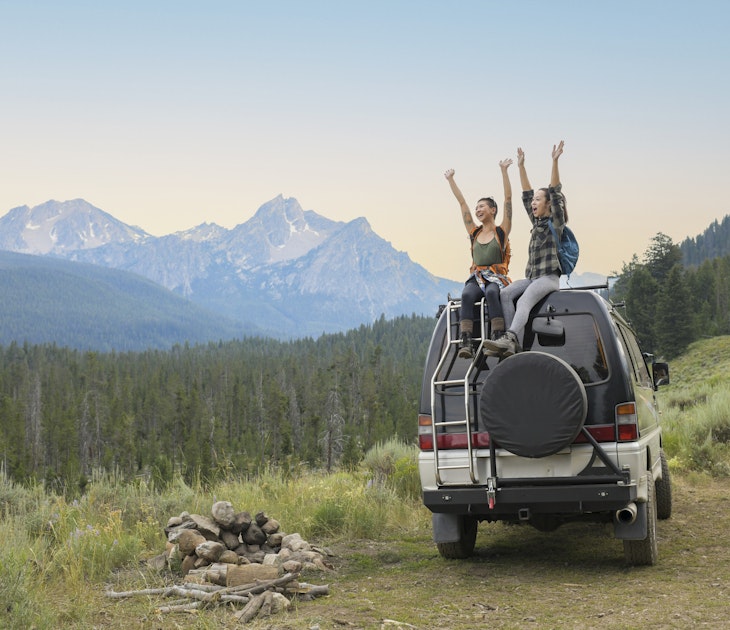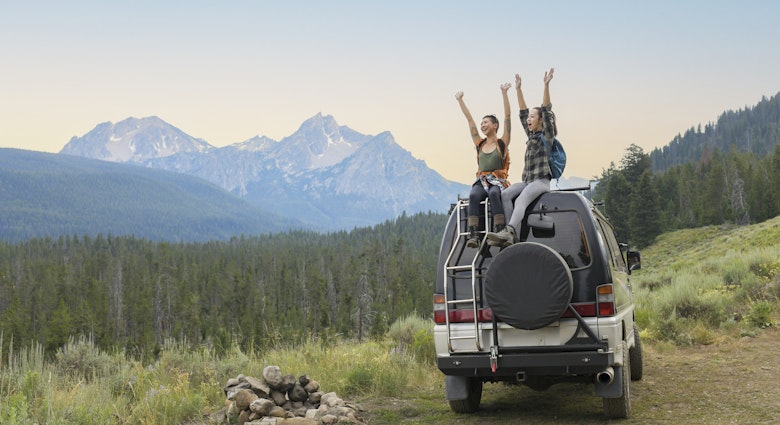There is a price to pay for California’s envious bounty: miles of salty coastline, bright, sun-filled days, dynamic cities, an infinite amount of tranquil and heart-pumping outdoor pursuits...we could go on forever.
But that doesn’t mean you have to pay full price to enjoy it all. Although most things in the Golden State are more expensive than other US destinations, budget trips to California are possible if you know where and how to look for savings. Consider these nine tips and things to consider to help you travel to California without breaking the bank.
Daily Costs
- Hostel room: $85-$90
- Basic room for two: $160/night
- Self-catering apartment (including Airbnb): $130/night
- Public transport ticket: $3-$5
- Coffee: $3
- Sandwich: $10
- Dinner for two: $60
- Beer/pint at the bar: $5-$7
Think small to go big
Generally, the price of accommodation veers steeply upwards in major cities, along the coast, and near major attractions – find savings by booking a hotel in surrounding areas. For example, travelers set on exploring San Francisco may want to consider accommodations in San Jose or Oakland, which come with their own charms, such as multicultural food scenes.
Dreaming of a sunny, coastal getaway to Malibu or Santa Barbara? Smaller beach towns like Cambria, a few hours’ drive north of Santa Barbara, or Ventura, an hour north of Malibu, may prove more affordable.
Opt for self-guided tours
Check out a city’s tourism office or chamber of commerce website for recommended itineraries you can complete at your leisure. In Palm Springs, begin at the Palm Springs Visitors Center, a midcentury modern landmark itself, and follow their recommendations to glimpse some of its most well-known architectural residences, buildings, and hotels.
Up north, Visit Redwoods compiled a number of self-guided adventures, from a mural tour of Eureka to a guide to Humboldt County’s historic lighthouses. Further south, Santa Barbara offers its Red Tile Walking Tour – a compilation of 17 stops showcasing its Spanish-style adobes dating between the 1700-1800s.

Research cultural attractions ahead of time
Save on activities like museums and scope out cultural attractions that offer free or reduced admission. In Los Angeles, the California African American Museum, The Getty Center, and the Broad are just some that offer free admission year-round. Orange County Museum of Art, the first floor of Mingei International Museum, and the Women’s Museum of California in San Diego, also offer free admission year-round.
Museums across the state also host designated free museum days, and some may require proof of residency to participate. Asian Art Museum, San Francisco Museum of Modern Art, Contemporary Jewish Museum, and Oakland Museum of California are just some San Francisco area institutions that participate in free museum days.
Bundle attractions for savings
Seek out city passes in most major cities to enjoy discounts to theme parks, museums, and other activities. Many city passes offer an all-inclusive pass to use over 3, 5 or 7 days, or an option to purchase a set number of activities at a discounted rate to use over a defined length of time, such as an eBike tour or whale watching.
At California’s parks, to camp or not to camp?
Compare various costs when deciding to stay and play in or near California’s bucket-list parks. Parks like Yosemite, Sonoma Coast State Park, and Joshua Tree National Park book up quickly on lodging, campsites and recreational permits.
Depending on when you’re traveling and what your preferred travel style is, it may make more financial sense to book that lodge instead of camping out when you consider fees for showers, and the equipment and time required to prepare and store your own food. Time will work in your favor as you plan your trip, as the longer you wait the options to potentially cut costs grow slim.
Be patient deciphering parking signs
In some cities’ downtown areas, it may seem like you need a PhD to interpret street parking rules. Can I park in a designated spot? For how long, and what exemptions do I qualify for?
Without having to deep dive into California’s driver handbook, avoid getting slapped with a parking violation that you’ll have to reconcile with your rental car company and take the time to carefully read through parking signs. One other tip: generally, conveniently located yellow and green loading and temporary parking zones are typically free to park in after 6pm.

Dine out during Restaurant Week
Sample some of California’s top restaurants for oftentimes reduced prices during participating cities’ restaurant weeks. From Sonoma to Sacramento, Los Angeles to Long Beach, Orange County to San Diego, participating restaurants typically offer an exclusive prix-fixe lunch and dinner menu.
In Los Angeles, for example, restaurant week lunch menus begin at $15 and $25 for dinner. Sometimes, a restaurant’s signature dishes are included in prix-fixe menus, so do some sleuthing to determine the best value for your dollar during this time.
Seek out more affordable wine regions
Napa undoubtedly oozes name recognition and some of the country’s best-fermented grape juice, but the state boasts many more regions producing high-quality wines at accessible price points. Consider wine-tasting itineraries in Sonoma, Monterey County’s Santa Lucia Highlands, Santa Barbara and Paso Robles along the central coast, and Temecula Valley in southern California.
With more than 100 American Viticulture Areas (AVA), or federally designated wine-growing regions, it’s possible to plan a wine-focused trip in California that won't leave you crying into your pinot when you get the bill.
Plan for marquee events well in advance
Sometimes, a trip isn’t about escaping the crowds, but reveling in them. Whether you’re keen to partake in San Francisco’s Pride festivities, the flower-strewn floats of the Rose Parade in Pasadena, or vibe into the wee hours in the southern California desert at Coachella, wallets benefit from more forward planning than less. It's wise to begin booking accommodations and rental vehicles for these marquee events up to a year or more in advance.













